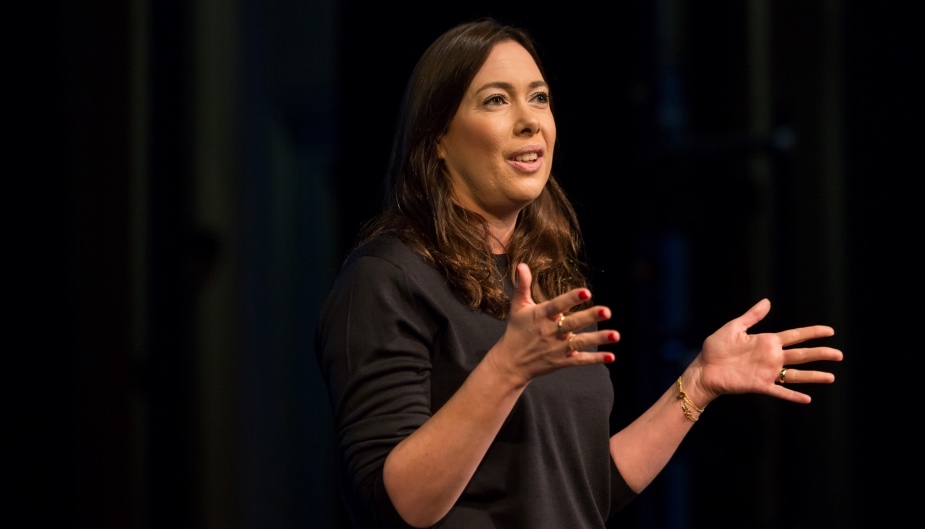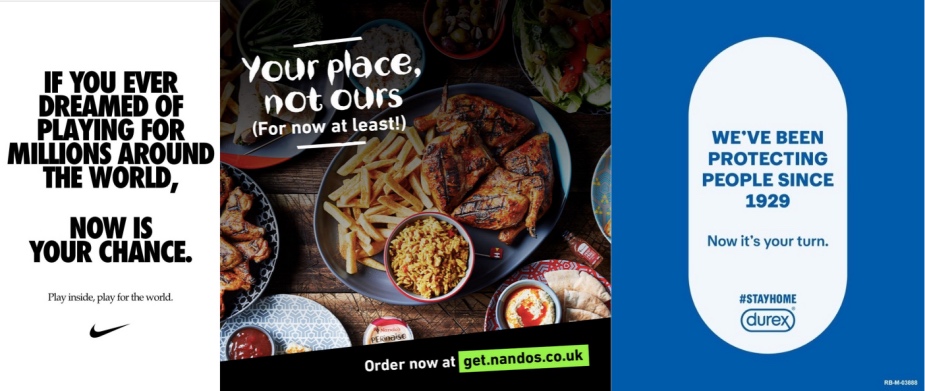
Write Right Now

C is for copywriting. It’s also for consistent, considerate and confident. All the things brands should be as they communicate (another word starting with C) with their consumers (and another).
Consistent
Brands. You created your personality and your tone of voice for a reason – because they represent you on any day and in any situation. And people recognise and remember your brand because you use your assets consistently.
Don’t lose consistency now. Your customers are your fans – they like you and buy from you, not just because you have a great product, but because of what you say and how you say it. Don’t chuck all your assets out in a panic.
With so much up in the air these days, people need stability where they can get it. You can offer that by being you. That doesn’t mean ignoring what’s going on in the world. You can still acknowledge it, but like Nike, Nando’s and Durex, do it in a way that only you could and would.

Considerate
Brands often think they must get serious to match the serious tone of the times. This is not true. It’s the equivalent of saying your Legals have to be written with a serious tone rather than the tone your customers associate with your brand. And a serious tone often includes cold and formal words. Fearful ones too.
Consider how your customer is feeling right now. Mainstream media is feeding them tragic stories all day every day. They’re finding it hard to trust country leaders. There’s a lot of uncertainty. We don’t need to acknowledge the times in the same tone. We’re their bank, their supermarket, their mobile phone provider. We’re there to support and serve, so we should acknowledge the times with warmth and reassurance.
I’ve written loads of COVID-19 related copy for Sky over the last two weeks. I made the decision at the start to always say “COVID-19” instead of “coronavirus”, and “right now” instead of “during these unprecedented / uncertain / challenging times”. Here’s why:
COVID-19
In amongst all the warm and reassuring words and phrases crafted to feel conversational, supportive and considerate, “COVID-19” looks meaningless. It’s just letters and numbers that scan as a code, not a word to digest, so readers will see it but may be unaffected by it.
“Coronavirus” is a word readers know and understand – and are worried by. It’s negative – it has “virus” in it. Everyone knows what that means, and it doesn’t have positive associations. Also, saying “coronavirus” isn’t actually factually correct. It’s a general term for any kind of flu, not the flu everyone’s currently talking about.
Right now
Everyone knows what’s going on so everyone knows what “right now” means. If it’s not your brand style to use cold and pessimistic language like “unprecedented” or “uncertain”, don’t use it. It’s tempting to align with the ongoing narrative but do it your way, not the media’s way. Your customers aren’t stupid – they’ll know what you’re referring to.
Another thing to consider – although this tip’s timeless, not just for the times we’re in today – is to say “we” rather than your brand name. When customers are in your brand world, like your website or an email, they know it’s you talking. Saying your brand name feels formal – a little aloof even.
Having said all that, if your customer truly comes first, put them first. You don’t need to tell them all about how you’re handling the crisis. I can’t imagine they really care. They care about themselves, their family and their friends. So tell them what you’re doing for them. Tell them how you can – and will – help.
Confident
Don’t copy others to be relevant to others. You have a brand that’s relevant to your customers so continue to be confident in how you communicate. It worked before, and it’ll keep working.
The clichés like “Now more than ever” are everywhere. If that’s not something you’d usually say, don’t say it. With so many brands saying it, it becomes meaningless. And it’s the brands with no confidence in their personality and tone of voice that clutch at clichés. Their assets are so bland, they never knew how to communicate before all this, so they certainly don’t know how to do so now.
But even the strong brands are at it. They’re butchering their promises – their slogans. Slogans they’ve spent a fortune creating and communicating so everyone knows who they are and what they stand for. Tesco’s brilliantly simple “Every little helps” has become “Because now more than ever, Every little helps.” That’s not a typo – they kept their slogan pure (which is a good thing, I suppose) but at the risk of committing a terrible punctuation crime. So were they not hugely committed to their promise before? And Lloyds Bank’s “By your side” is “Now, more than ever, we’re by your side”. Are they telling us that they weren’t really by our side before?
Your slogan is meant to last forever. It’s meant to work everywhere, every day. Don’t lose confidence in it now.













